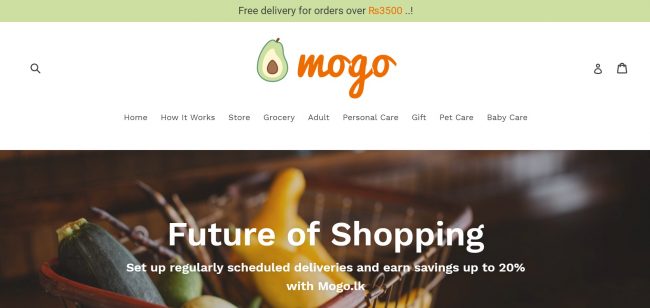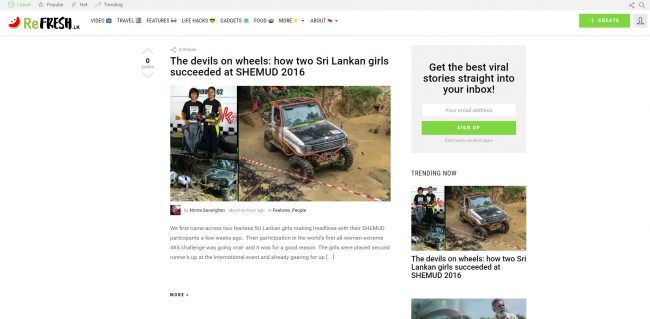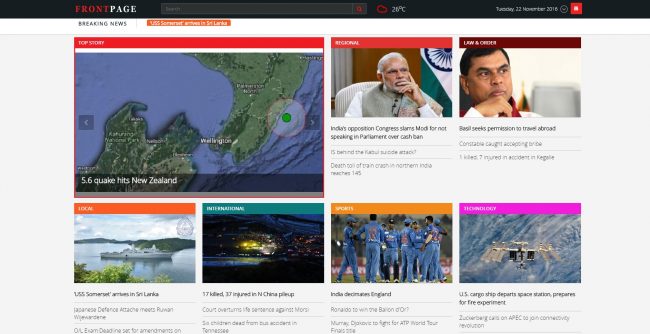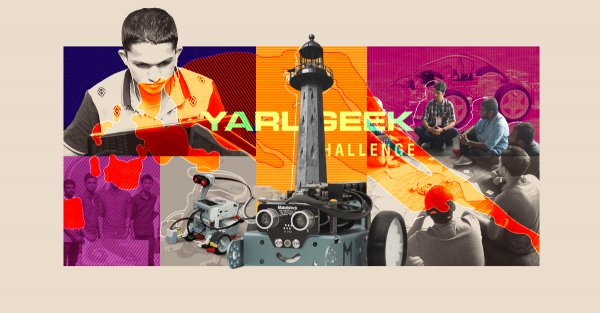
This year has seen a lot more entrepreneurs experimenting in the startup space, as well as existing startups maturing and coming into their own. It’s not all about apps and software anymore either; startups are venturing into the health industry, education, retail, and media ‒ all areas that need change.
As this year draws to a close, we bring you an extended version of the Startup Bundle, featuring experienced companies that have been winning awards to those that are just a few months old. Here are the startups, in no particular order:
Mogo.lk

Mogo.lk operates on a simple premise: people shop for groceries regularly, so why not create a service that automates this? Through the Mogo website, users select products in the store, set up a delivery frequency, and have the products delivered straight home. One off purchases can be made, but using the subscription service can create discounts of up to 20%. Subscriptions can be cancelled and deliveries skipped at any time.
Mogo offers a good service, but it functions more as a store than solely a grocery delivery service. That means that products you can order are limited to whatever is available in the store, which at this time does not seem to be a very large selection.
Jendo

Jendo Innovations came in first at the recently concluded John Keells X Innovation Challenge, winning the prize of Rs. 2 million. They are a health startup looking to change the way health checkups and monitoring are done. They use an oximetry probe (a clip attached to one’s finger) to measure a series of signals and readings drawn from the blood pushed through the finger by the pulse. Using these readings, the platform developed by Jendo can predict cardiovascular health and diseases such as diabetes. The data is stored in the cloud through the user’s profile, so a user can visit any clinic with the system, complete a health checkup, and have access to data from previous checkups.
Since the system is non-invasive, it makes for a much simpler and palatable alternative for health checkups. Its online platform also allows for a deep analysis of data and a complete history of your health record available at any time.
Whiteboard

Tuition is big in Sri Lanka, with after-school classes packed with kids trying to learn stuff they should be learning at schools to pass exams. There are a few startups working to change the way tuition is done, by taking it online and making it easier for both students and teachers to find each other. Whiteboard is very new to the business, but what makes them different is that they are student-run and non-profit.
Tutors register themselves, listing their qualifications, subjects, syllabus, location, and fees. Students can then search through the list of tutors, filtering by subject, location and price. There is provision for conducting lessons online, so the site is mainly to help teachers and students find each other.
Aniwa.lk

There aren’t a great many options for alternative and indie media in Sri Lanka, so it’s nice to see a few startups working on changing this status quo and doing something new. Aniwa.lk is a young startup that generates original Sinhalese content, but that steers away from the standard gossip sites full of celebrity news and scandals. Aniwa.lk creates content on lifestyle, fashion, arts, culture, and social issues.
They have grown fast over the past few months with investment from the Lankan Angel Network, and have been gaining readership quickly, releasing a consistent stream of content.
Refresh.lk

Refresh.lk is less than a year old, but they have been pumping out fresh (heh) and original Sri Lanka-focused content on a regular basis. Publishing a mixture of English and Sinhalese pieces, they focus mainly on lifestyle and pop content. A project of Lesovo Holdings (a company with a slightly ambiguous focus), they state that they are a self-funded, open community platform, accepting community content for publishing. The writing could use an editor’s touch, but the content is fun and enthusiastic.
Frontpage.lk

Frontpage.lk has been around for a while, publishing content low-key since November 2014. They’ve been ramping up content over the past year with a mix of local and foreign news. Focusing on news, politics, sports, and technology, Frontpage.lk is very much a digital version of a newspaper’s front page, with short bites of content, news tickers, and weather updates on the main page. The site is in English, but they do have a sister site in Sinhalese called Savana.lk.
Conclusion
It’s good to see startups in the health, media, and education industries. Health and education are very traditional sectors that move slow and are hesitant to accept anything disruptive, which is what the best startups now do. Media in Sri Lanka is dominated by newspapers, TV, and radio, so it is difficult for independent sites to generate readership and a following. But these startups are pushing boundaries, trying new things and taking risks. And that’s exactly what the industry needs.








